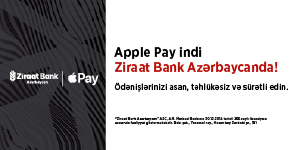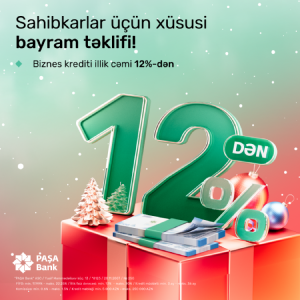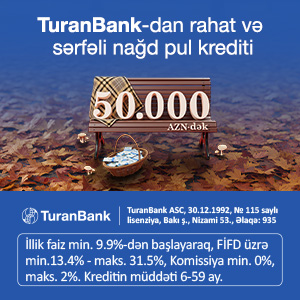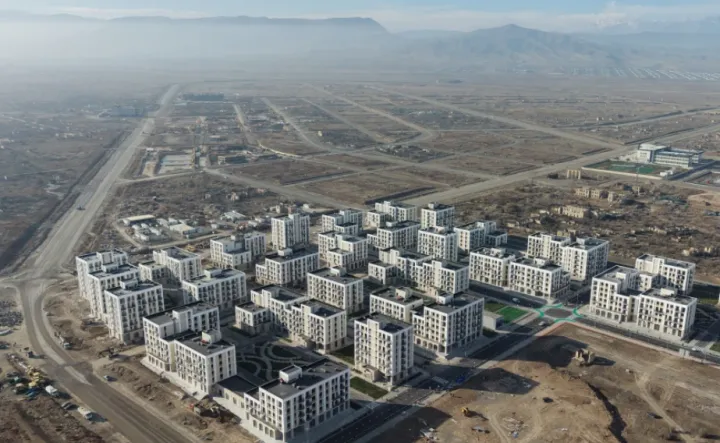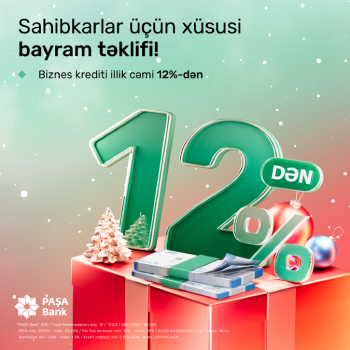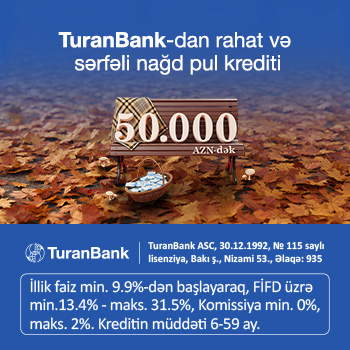"Fitch" Azərbaycanın reytinqini sabit saxlayıb
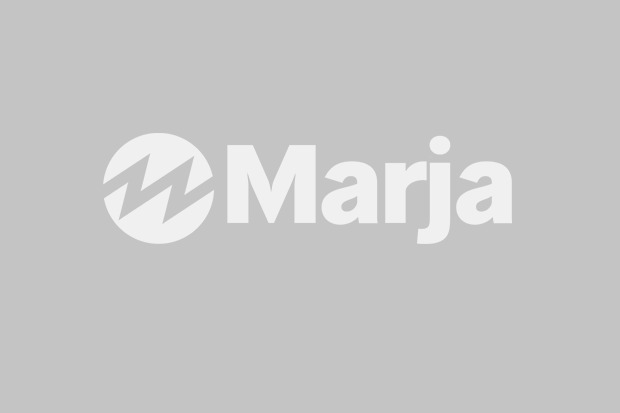
“Fitch Ratings" beynəlxalq reytinq agentliyi Azərbaycanın yerli və xarici valyutada uzunmüddətli reytinqini "BB+" investisiya səviyyəsində saxlayıb. Reytinq üzrə proqnoz "mənfidir".
Bu barədə agentliyin press-relizində bildirilir.
Neftdən əldə edilən yüksək gəlir sayəsində ölkədə dövlət borcunun aşağı olduğu vurğulanan açıqlamada, iqtisadiyyatın karbohidrogen sektorundan asılılığının yüksək, bank sektorunun isə zəif olduğu qeyd edilib.
Açıqlamada, Azərbaycanın reytinq mənzərəsinin mənfi olması ilə bağlı da makroiqtisadi və maliyyə sektordakı aktlar ilə əlaqədar olan risklərə və qeyri-müəyyənliklərə işarə edilib.
Fitch Affirms Azerbaijan at 'BB+'; Outlook Negative
Fitch Ratings has affirmed Azerbaijan's Long-Term Foreign- and Local-Currency Issuer Default Ratings (IDR) at 'BB+' with Negative Outlooks. The issue rating on Azerbaijan's senior unsecured foreign-currency bond has also been affirmed at 'BB+'. The Country Ceiling has been affirmed at 'BB+'. The Short-Term Foreign- and Local-Currency IDRs have been affirmed at 'B'.
KEY RATING DRIVERS
Azerbaijan's 'BB+' ratings balance a strong external balance sheet and low government debt, stemming from accumulated surpluses in times of high oil revenues, with a heavy dependence on hydrocarbons, an underdeveloped policy framework, low governance indicators and a weak banking sector.
The Negative Outlook reflects continued risks and uncertainty around the macroeconomic and financial sector adjustment currently under way.
Azerbaijan's 'BB+' IDRs reflect the following key rating drivers:
Public finances are stronger than 'BB' rated peers and surprised on the positive side in 2016. Despite a large fall in oil revenues in 2016, the consolidated general government deficit was contained at 1.2% of GDP, below the 'BB' median of 3.3% and below our previous forecast of 7.3%, mostly due to a 41% capital expenditure cut. Fitch expects a one-off widening in the budget deficit to 8.4% of GDP in 2017, due to planned support through the budget from sovereign wealth fund Sofaz to the banking sector, worth around 12% of GDP. Beyond 2017, the fiscal balance is expected to improve as oil prices recover; the envisaged adoption of a fiscal rule could reduce the pro-cyclicality of public finances over the medium term.
Deficits are largely financed by ample assets accumulated in Sofaz. Despite a decline in the USD value of assets in 2015-2016, they accounted for a comfortable 92% of GDP at end-2016 (USD33.1bn), were largely held in safe, liquid assets, and were reported much more transparently than in most higher-rated oil producers. Government debt therefore remains contained, at 22.5% of GDP at end-2016, much lower than the 'BB' median of 51.1%. Although public debt has an unfavourable currency composition (88.2% was denominated in foreign currency at end-2016), this is mitigated by the USD denomination of most Sofaz assets.
The plunge in oil prices has affected the current account balance, which recorded an estimated deficit of 2.9% of GDP in 2016, in line with the 'BB' median. Despite two manat devaluations in 2015, non-oil exports have not picked up and imports have remained resilient. Fitch, however, only expects the current account to return to surplus in 2018 as oil prices pick up, and does not forecast any significant reduction in commodity dependence given the expected rise in gas exports over the medium term.
FX reserves fell to a historical low of USD3.9bn at end-2016 (2014: USD13.8bn), just covering three months of current account payments. In a move to preserve FX reserves and Sofaz assets, the central bank adopted a managed float regime in 2016, which it intends to convert into a free float in 2017. Ongoing volatility of the manat undermines confidence in the currency. Despite the decline in FX reserves and Sofaz assets over the past two years, the external balance sheet remains much stronger than the 'BB' median, with the sovereign and non-bank private sector net external creditor position above 100% of GDP.
The banking sector has become extremely vulnerable following the devaluations and slowdown in the economy, with a Fitch Banking System Indicator of 'ccc'. The newly created bank regulator FMSA closed 10 banks in 2016 and continued to restructure the largest bank IBA (holding 30% of total assets), which Fitch deems as having failed in 2016. However, with NPLs high at 21% of gross loans at end-2016 (and likely under-reported in Fitch's opinion), and a sector-wide capital adequacy ratio of 7.6%, the sector is likely to need further support in 2017. The bulk of it will be provided by the budgeted Sofaz transfer but the state will provide additional support to IBA during the year, which will add to the 21% of GDP guarantees already extended over the past two years.
Macroeconomic performance in 2016 was hard hit by the fall in oil prices, the mishandled devaluations and problems in the banking sector. Inflation remained much higher than the 'BB' median at 12.6% on average in 2016, despite a restrictive monetary policy, as the high dollarisation rate (80% at end-2016) and lack of confidence in the currency impair monetary policy transmission. Real GDP contracted 3.8% in 2016, the third worst performance of all Fitch-rated sovereigns, primarily reflecting a 27.6% contraction in construction as public investment was cut. Oil production also declined by an estimated 1% due to the natural ageing of oil fields. Volatility of GDP, inflation and exchange rate is therefore well above 'BB' medians.
Economic diversification is progressing very slowly despite some improvement in doing business indicators but the expected rise in oil prices and the start of gas production at the Shah Deniz 2 development around 2019 could lift growth prospects over the medium term. Policy credibility could also improve growth prospects if the ongoing reforms of the exchange rate and monetary policy frameworks, and the restructuring of the banking sector bear fruit. Fitch therefore expects a gradual improvement in growth prospects over the next two years.
Structural features are weak relative to peers, with GDP per capita falling below the 'BB' median in 2016 to USD3,600. Political risk also remains significant, as illustrated by lower governance indicators than 'BB' peers, a strengthening of power centralisation after the September 2016 referendum, and small social protests such as those in early 2016. Although the conflict with Armenia over the Nagorno-Karabakh region has stabilised since the flare-up in tensions in April 2016, the situation remains volatile, the area is heavily militarised and negotiations remain stalled.
SOVEREIGN RATING MODEL (SRM) and QUALITATIVE OVERLAY (QO)
Fitch's proprietary SRM assigns Azerbaijan a score equivalent to a rating of 'B+' on the Long-Term Foreign Currency IDR scale.
In accordance with its rating criteria, Fitch's sovereign rating committee decided not to adopt the score indicated by the SRM as the starting point for its analysis because the SRM output has migrated from 'BB-' to 'B+', but in our view this is potentially a temporary deterioration.
Assuming an SRM output of 'BB-', Fitch's sovereign rating committee adjusted the output to arrive at the final Long-Term Foreign Currency IDR by applying its QO, relative to rated peers, as follows:
- External finances: +2 notches, to reflect the size of Sofaz assets which underpin Azerbaijan's exceptionally strong foreign currency liquidity position and the very large net external creditor position of the country.
Fitch's SRM is the agency's proprietary multiple regression rating model that employs 18 variables based on three year-centred averages, including one year of forecasts, to produce a score equivalent to a Long-Term Foreign Currency IDR. Fitch's QO is a forward-looking qualitative framework designed to allow for adjustment to the SRM output to assign the final rating, reflecting factors within our criteria that are not fully quantifiable and/or not fully reflected in the SRM.
RATING SENSITIVITIES
The main factors that could, individually or collectively, trigger negative rating action are:
- Policy initiatives or responses that further undermine macroeconomic stability;
- An erosion of the external asset position resulting from a failure to sustainably adjust budget execution to the lower oil price environment, or from a materialisation of large contingent liabilities;
- A further sustained and prolonged fall in hydrocarbon prices.
The Outlook is Negative. Consequently, Fitch does not anticipate developments with a high likelihood of triggering an upgrade. However, the main factors that could, individually or collectively, trigger a revision of the Outlook to Stable are:
- Greater confidence in macroeconomic and financial policy management;
- Higher hydrocarbon prices that help preserve fiscal and external buffers;
- Improvement in governance and the business environment, and progress in economic diversification underpinning growth prospects.
KEY ASSUMPTIONS
Fitch currently assumes that Brent crude oil will average USD45/b in 2017 and USD55/b in 2018.
Fitch assumes that Azerbaijan will continue to experience broad social and political stability and that there will be no prolonged escalation in the conflict with Armenia over Nagorno-Karabakh to a level that would affect economic and financial stability.
Müştərilərin xəbərləri
SON XƏBƏRLƏR
- 4 gün sonra
- 4 gün sonra
-
3 gün sonra
Dollar ilə yeni investisiya imkanı: Azərbaycan Dəmir Yollarının istiqrazları ABB mobile tətbiqində
-

- 1 saat əvvəl
-
1 saat əvvəl
2-ci APFM AWARDS mükafatlarının təqdimat mərasimi keçirilib - FOTOLAR
- 2 saat əvvəl
- 2 saat əvvəl
-
3 saat əvvəl
Azercell “Gələcək sizinlə başlayır! – öyrən, böyü, paylaş” sosial təşəbbüsünə start verib
- 3 saat əvvəl
-
3 saat əvvəl
Kiberpolis 1 milyon manatlıq kriptovalyutanı ələ keçirən şəxsləri saxladı - VİDEO
- 3 saat əvvəl
-
3 saat əvvəl
“Kristal” şirkəti kabel üzrə qlobal liderlərdən biri ilə memorandum imzaladı
Son Xəbərlər

Biznesiniz üçün QISA NÖMRƏ (Ulduz nömrə) alın

Azərbaycanda Vakansiyalar - Azvak.az

Dollar ilə yeni investisiya imkanı: Azərbaycan Dəmir Yollarının istiqrazları ABB mobile tətbiqində

Tanınmış iş adamı Mikayıl Yusifov mükafata layiq görülüb

Bir sıra məhkəmələrə hakimlər təyin edilib - SİYAHI

Ələt azad iqtisadi zonasında “BioPharmax” layihəsi - müxtəlif tibbi məhsulların istehsalı nəzərdə tutur
Ən çox oxunanlar
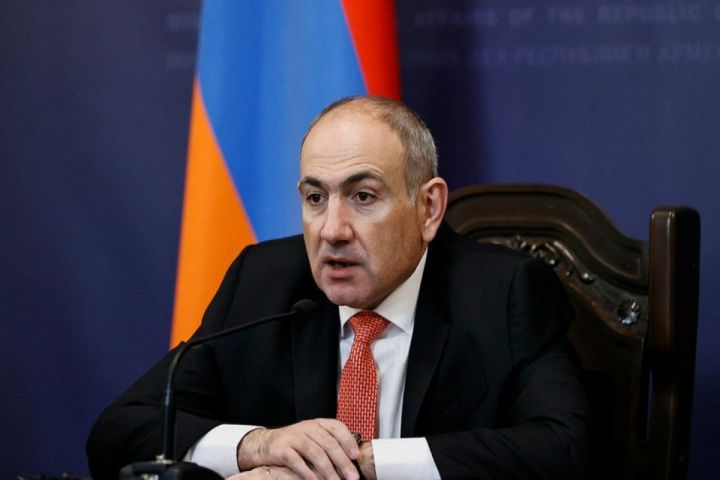
Paşinyan yaxın vaxtlarda Ermənistanla Azərbaycan arasında ikitərəfli ticarətin olacağına ümid edir

Azərbaycandakı neft emalı zavodlarının bioyanacaq emalı zavodlarına çevrilməsi imkanları araşdırılır

Yaponiyadan 1 milyondan çox xarici işçi qəbulu planı
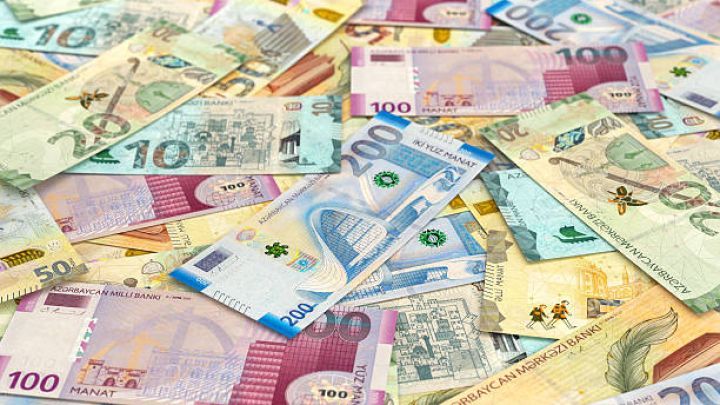
Əhalinin banklarda müddәtli әmanәtlәri 10 milyard manata yaxınlaşıb

11 ayında bank sektorunda çalışanların sayı 1657 nәfәr artıb


